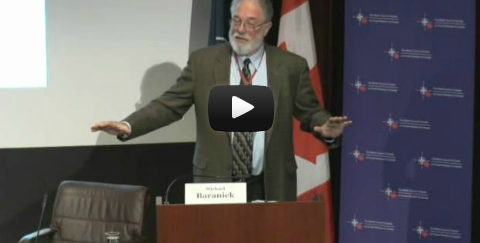Water will be the cornerstone of the legacy that Canada hopes to leave behind in Afghanistan prior to its withdrawal date a year from now. In a war-torn country racked with abject poverty and decades of strife, it has been extremely difficult to decide where Canada should focus its development and aid efforts. Ben Rowswell, Canada’s top civilian official in Kandahar province, has stated that there are “so many things that could be done when you’re in an environment like this”.
When Ottawa decided in 2008 to establish a set withdrawal date for Afghanistan, it identified three specific target areas for development: developing schools, vaccinating locals for polio and rebuilding the strategically important Dahla Dam at the core of Kandahar’s Arghandab district. Prime Minister Stephen Harper has stood firm in its determination to end Canada’s combat mission in Kandahar on July 1, 2011. Canadian troops will come home next summer, and will be replaced by development and diplomacy, despite growing voices urging the Harper Government to reconsider next year’s withdrawal date.
With last month being the deadliest for NATO in nine years, the need to make an “honourable exit” without abandoning its commitments has placed Canada in a difficult position. The tragic deaths of Canadian personnel are continuous reminders that Afghanistan is still very much in a state of war, and that at times victory seems beyond the scope of even NATO’s capabilities. Established goals such as the Dahla Dam project is a means of focusing Canadian efforts on set target areas, and concentrating much-needed resources where they will be most effective.
Over the next three years, Canada has committed to spend $50 million on the Dahla Dam, a project that was recommended by Afghan President Hamid Karzai. The water being channeled from the dam will be used on the Arghandab district’s dry and arid fields. The Dahla Dam has been signalled as Canada’s largest and most important signature project in Afghanistan. ‘ The dam still remains a significant security target for the Taliban, as they carry out their planned offensive against the US troop surge this summer with attacks that are of increasing intensity and frequency. Further complicating the situation are the main obstacles faced by the Dahla Dam project: corruption, broken infrastructure and old landmines.
Yet despite criticisms of the project, the positive effects are already evident. Canadian International Development Agency (CIDA) reports from the most recent flyover of the dam and its environs told of lush, green orchards on the once-parched fields. Canadian International Development Minister Bev Oda asserted that the changes brought about by the dam have been “really encouraging”, and that “when you can visually see progress, it’s very rewarding”.
The almost-60 year old Dahla Dam, located 34 kilometres north of Kandahar City, is the largest in all of Kandahar province, and the second largest in Afghanistan. When completed, the project is expected to increase the amount of irrigated land in the Arghandab River basin by 50 per cent. This will provide local communities with the valuable capacity to grow their own food—particularly in a country that has often struggled with short supplies of food. And as Canada shifts its focus from security to development and institution building, the Dahla Dam could prove to be one of the most important, life-giving and sustainable remnants of Canada’s involvement in the Afghan war.
There are still many things that need to be done, and Rowswell has responded to reports drawing light to the issues that will not be a part of Canada’s target areas before its withdrawal. Rowswell stated that “we focused on a certain number of sectors, and that involves some tough choices”, as Canada simply cannot tackle every challenge.
By Tanah Sullivan
Further readings: Water: Canada’s secret ingredient for Afghan development, Harper resolute on Afghan mission, Exiting the Afghan maze, Saving face on way out of Afghan maze, Afghanistan Update
*Disclaimer: The opinions expressed in this article are solely of the author’s, and do not represent those of The NATO Council of Canada.



